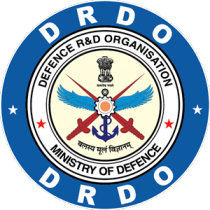Global Game-based Learning Market Spikes to $28.8 Billion by 2025
SEATTLE, May 4, 2020 /PRNewswire-PRWeb/ -- The growth rate for Game-based Learning across the planet is 27.1% and revenues will more than quadruple to $28.8 billion by 2025, according to a new market report by Metaari (formerly Ambient Insight) called "The Worldwide 2020-2025 Game-based Learning Market".
"We have been updating this report on an annual basis since 2005," comments Sam S. Adkins, Chief Researcher at Metaari. "Our data gets more granular every year as we recalibrate and refine our extensive baseline data. This report includes detailed five-year revenue forecasts for the top 63 buying countries: 10 countries in Africa, 12 countries in the Asia Pacific, 8 countries in Eastern Europe, 9 countries in Latin America, 7 countries in the Middle East, 2 countries in North America, and 15 countries in Western Europe. They are the top buying countries in the world. This is the most comprehensive learning game market report every published."
The US will be the top buying country throughout the forecast period. The growth rate for serious games in the US is a robust 29.2% and revenues will reach $7.5 billion by 2025. In the 2020 serious game market, the US accounted for 24% of all global revenues. By 2025, the US will account for 26% of worldwide revenues for learning games.
In 2020, the top buying countries were the US, China, India, Japan, and South Korea, respectively. By 2025, the top buying countries will be the US, India, China, Indonesia, and Malaysia, respectively.
The report has 608 pages, 106 five-year revenue forecast tables, and 16 charts. The Serious Play Conference (SPC) is the exclusive reseller of the report. The SPC has a four-tiered pricing model depending on the type of organization buying the report. It can be purchased at:
https://seriousplayconf.com/downloads/2020-2025-global-game-based-learning-market-metaari-report/
"In educational psychology, there are two phases of the learning process: knowledge transfer and learning transfer," reports Adkins. "Knowledge transfer is the transmission of information and skills to the learner. Learning transfer is the ability of the learner to demonstrate mastery in a real-world setting. Next-generation Game-based products (particularly the new augmented performance support products on the market) effectively accomplish both phases simultaneously."
There are three sections in this report: an analysis of the major catalysts driving the market, a demand side-analysis, and a supply-side analysis. The analysis of the catalysts provides a detailed discussion of the eight major catalysts driving the global serious games market that include: the integration of AI into learning games, the high demand for AR and VR serious games, historic levels of private investment flowing to learning game startups, large-scale global distribution agreements, intense M&A activity, the booming global consumer demand for mobile learning games, the rapid uptake of serious games in the corporate segments across the globe, and the availability of inexpensive rapid development tools.
The demand-side analysis breaks out five-year revenues forecasts for seven international regions and by eight buying segments. Five-year forecasts are provided for seven regions: Africa, Asia Pacific, Eastern Europe, the Middle East, Latin America, North America, and Western Europe. Western Europe has the highest growth rate at 47.4% followed by the Middle East at 44.9%.
"The report includes five-year revenue breakouts for eight buyer segments: consumers, three academic sub-segments (preschools, primary schools, and secondary schools), tertiary & higher education institutions, federal government agencies, provincial/state/prefecture & local government agencies, and corporations & businesses," says Adkins. "The global corporate segment has the highest growth rate at 44.4% driven by the rapid uptake of business simulations, cybersecurity games, and pre-employment assessment games."
The supply-side analysis provides revenue forecasts for three major product categories: packaged retail content (further broken out by eleven distinct learning game types), custom content development services, and authoring tools & platforms. The forecasts in this report break out retail revenues by eleven distinct educational game types based on Metaari's pioneering Pedagogical Framework for Game-based Learning.
The framework is a design and development specification that developers use to build learning games for specific subject domains and demographics. The revenues are quite distinct for each game type. The educational game framework is a quantitative method to identify precise and addressable revenue opportunities for developers.
"Over 2,300 learning game developers operating across the globe are identified in this report to help suppliers locate domestic distributors, partners, and potential merger and acquisition (M&A) targets," adds Adkins. "Startups are coming on the market at a rapid rate and venture capital is flowing to serious game startups. The revenue opportunities are lucrative in every region of the world in both developing and developed economies."
About Metaari
Metaari (formerly Ambient Insight) is an ethics-based quantitative market research firm that identifies revenue opportunities for advanced learning technology suppliers. We track the learning technology markets in 126 countries. We have the most complete view of the international learning technology market in the industry. Metaari focusses solely on advanced learning technology research on products that utilize psychometrics, neuroscience, location-based learning (location intelligence), game mechanics, robotics, cognitive computing, artificial intelligence, virtual reality, and augmented reality.
SOURCE Metaari




